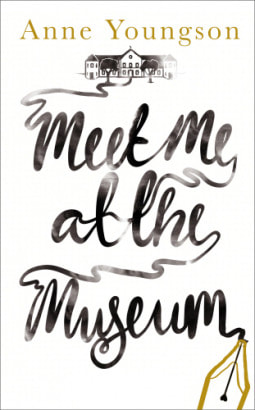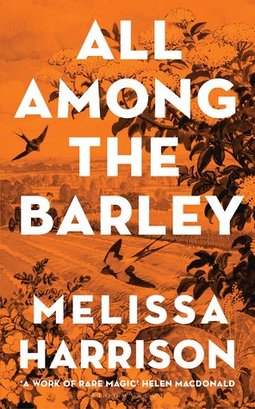Meet Me at the Museum by Anne Youngson
Although the professor has been dead for years, Tina does receive a reply. Anders Larsen, current curator, makes a somewhat formal attempt to answer her questions and, after politely clarifying some misunderstandings between them, their correspondence continues as they find in each other a cure for the loneliness at the heart of both their lives.
Tina married young, less for love of her husband, or the farm that came with him, but, being pregnant, to do the right thing. Three grown-up children later, she wonders about paths not taken, choices not made. Anders is mourning the death of a wife who, after childhood neglect, always found life hard, and whom he felt obliged to watch over more closely than their daughter and son.
I enjoyed eavesdropping on the characters’ attempts to explain their lives to themselves and each other and how their ordinary musings brought out the best in them. In particular, Tina’s reflections on the life she might have had echoes some of the one of the themes in my forthcoming short story collection, Becoming Someone; while the mutual support of two strangers unexpectedly brought together reminded me of Should You Ask Me.
Will their friendship progress beyond the virtual world of letters and emails, or will other responsibilities keep them apart? You’ll have to read Anne Youngson’s debut, published by Doubleday who provided my review copy, to find out.
All Among the Barley by Melissa Harrison
When Constance FitzAllen arrives from London to document fading rural traditions, Edie finds in the older woman an unlikely friend. But while Connie charms the neighbourhood, there’s something unsettling about her defiance of convention and apparent independence of mind.
We know from the opening pages that something dreadful is to happen, but it’s easy to set that aside as we’re lulled by chapter after chapter describing life on the family farm. As a nature writer, Melissa Harrison handles this exquisitely; if it sometimes totters on the verge of sentimentalism – for example, it’s hard not to feel nostalgic at the preponderance of butterflies and songbirds so depleted today – it’s sharply dispassionate in contrast to Connie’s idealistic newspaper columns on pastoral life.
And then, of course, there are hints – clear to the reader, if not to Edie herself – that all is not well under the surface, and likely to get worse. In addition to the vagaries of the weather, the farm is under financial pressures and the father is responding badly to his loss of control. In a culture in which women don’t have full custody of their minds and bodies, we worry about Edie’s capacity to keep herself safe. On top of that, despite her pleasant personality, Connie’s politics are disturbing: we know where they led in the 1930s and recognise their re-emergence almost a century on.
I was fascinated that Edie is an exact contemporary of my Matilda Windsor, with striking similarities (as well as differences) in her journey into the last decade of the twentieth century. Forgetting they’re fictional, I wondered if they could’ve saved each other if they’d been friends.
Melissa Harrison’s powerful third novel is a sympathetic portrayal of a mind unravelling in the context of a community that is likewise losing its way. A glimpse of history with a lesson for today. Thanks to Bloomsbury for my review copy.























 RSS Feed
RSS Feed





















